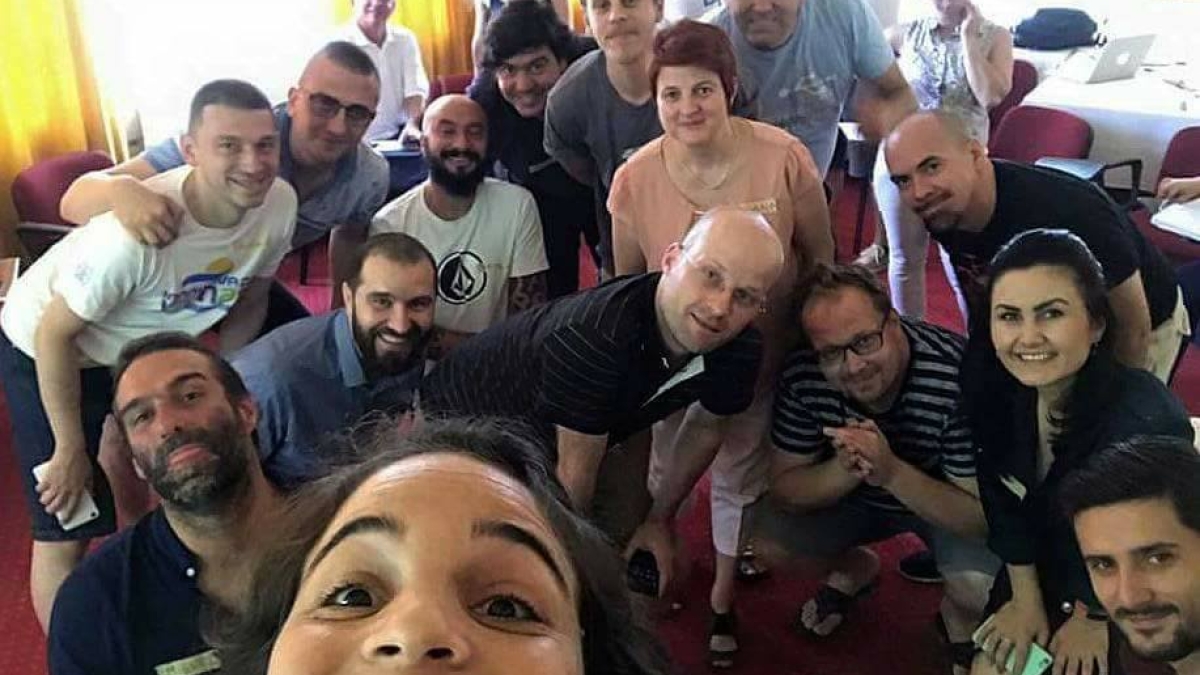ASU professor leads youth workshop in Romania

Members of the youth workshop to encourage participatory policy-making.
Editor's note: This summer, Arizona State University School of International Letters and Cultures Professor Oana Almasan participated in an event in Cluj-Napoca, Romania, to share her experience as an expert in designing participatory processes, and help youth workers from seven European cities better understand what it takes to design and implement successful participatory projects for involving youth in local governance, and build stronger and more self-reliant communities. Here she reflects on the event.
The workshop I attended shows an increased interest in building strong, self-reliant youth communities across Europe, able to further the democratic principles of EU. It was part of a EU-financed project meant to develop a platform for youth participation at the EU level.
My role there as a trainer was to help youth workers from 9 European countries (10 cities) to understand how participatory mechanisms could benefit their communities and how to plan and design such processes adapted to their specific cultural and societal needs, in such a way that they would actually increase their chances of success.
Studying how culture impacts societies helps you understand how promoting some specific practices enables the development of democratic behaviors. This is the field of public participation. I studied, in the beginning, the specific culture and cultural processes in Romania, right after the fall of communism, when the main preoccupations in the public discourse was to get super-fast to the state of established democracy, so that everybody's life would be better off.
Despite such great hopes and expectations, if you do not take culture into account in designing public policies and local/national strategic development plans, those plans and policies have really high chances of failure. I designed the first collaborative-based participatory budgeting process in a former communist country, eventually drawing the interest of the World Bank. Then, I got to share my experience with countries with similar cultures, with other European countries, and even with students here at ASU.
The summer workshop was the first step in giving 10 European cities spread over 9 countries a better chance in having their youth heard and actively involved in local/central European policy. This would also mean that more and more local/central governments would actually start recognizing the need of employing culturally-specific tools in public decision-making for reaching common goals such as democracy and economic development.
Every two years or so, ASU organizes a conference on participatory democracy. Listening to the stories of European youth, I realized how great it would be to have them shared with our SILC students as well. So, while telling them about the participatory democracy conference that could help them advance their plans in the public sector, I was inviting them to consider a humanities approach to their quest through a potential round table event at SILC. They can share their stories and hear others' stories of resolve and identity. There is interest in it, maybe we can make it work.
More Local, national and global affairs

Arizona PBS is now free to stream for Prime Video viewers in the US
Arizona PBS is now available for streaming on Amazon Prime Video. A new partnership between PBS and Amazon brings the station’s…

First-ever Taiwan Symposium at Thunderbird celebrates business, cultural connections
The investment by TSMC and other Taiwanese corporations in Arizona will reap dividends not only in thousands of new jobs but also…

Study shows that trust drives successful market economies — but not in the way you may think
From fueling our cars to fulfilling daily coffee habits, the average U.S. cardholder makes 251 credit card transactions per year…

